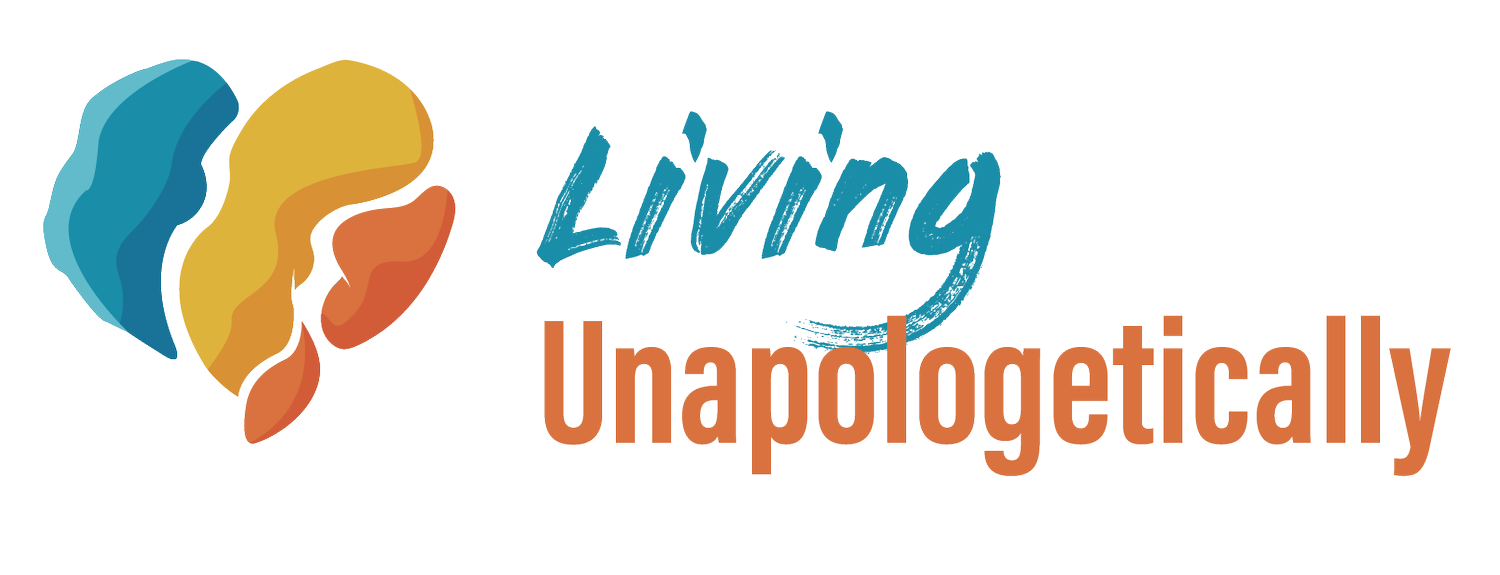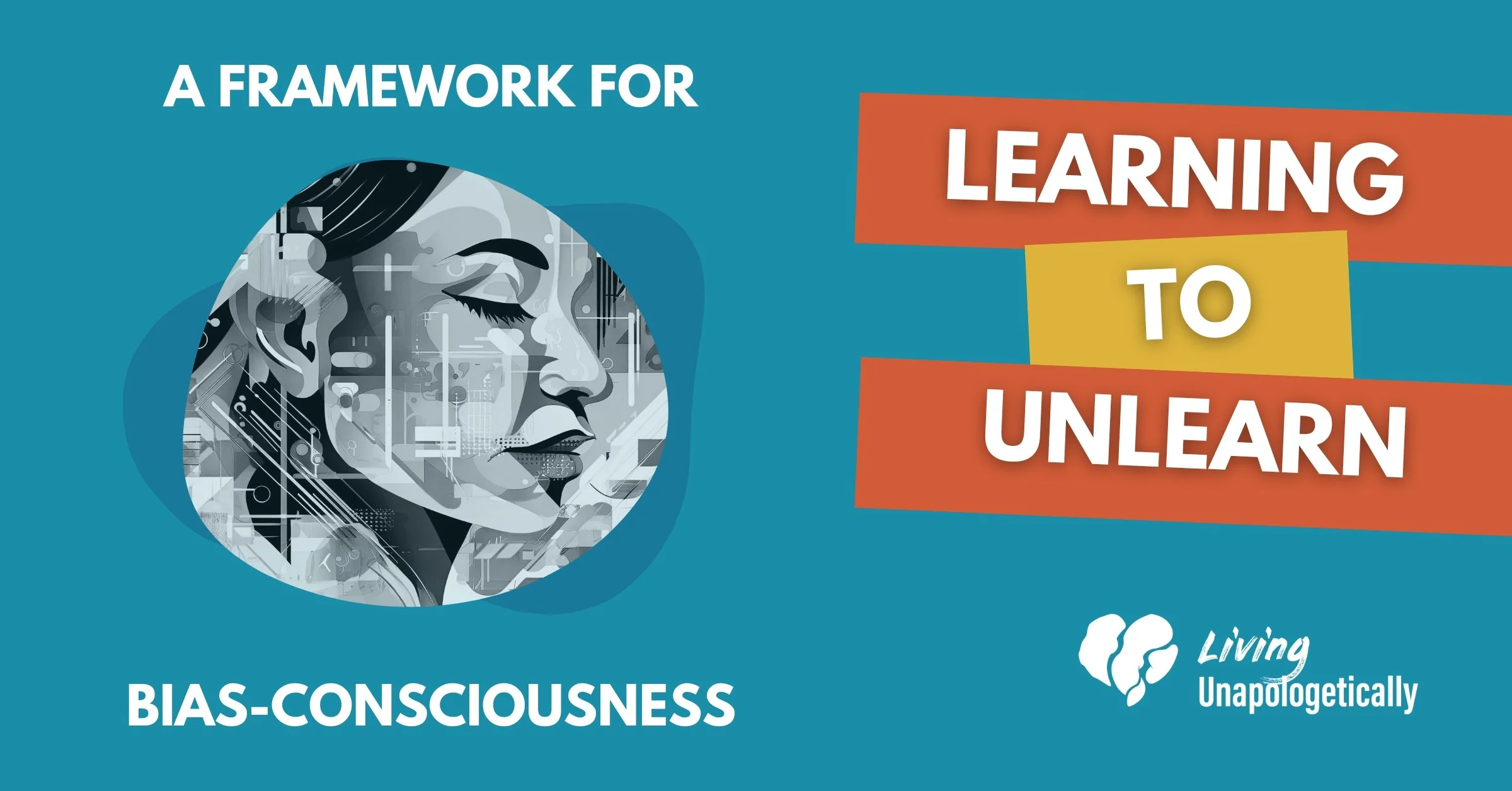Learning to Unlearn: A Framework for Being Bias-Conscious [2023]
Take a quick look at my services page, and you may think that equity, diversity, and inclusion (EDI) issues come naturally to me. And in a sense, they do, because they are so critical to the health of employees and organizations. At the same time, though, I didn’t always understand their importance. In fact, it was quite the opposite.
When I was in my 20s, I experienced what I call my catalyst for change. I was digging through a box of old papers, and I found a list of words I’d created with a close friend and family member a few years prior. At the time, we thought we were being funny, but reading it at the age of 25, I was ashamed because we had actually put together a list of words describing people - some that looked like us and some that didn’t - in demeaning and discriminatory ways.
This called everything into question. As an adult who just experienced this moment, I had no idea where I had learned those associations. And I had no idea where else these perceptions had shown up in my life. I realized that I had deep biases, and they were keeping me from being the leader that I knew I wanted to be.
So, I did the only thing I knew how to do as a student working on a clinical social work degree - I researched, I practiced self-exploration, and I tried creative ways to unearth the sources of my unconscious biases. I invited others to join my journey - individually at first and then at an organizational level, which made me realize that I was not alone in what I had experienced. I met so many leaders who were hungry to show up in their lives from a place of equity but felt they didn’t have the tools to do so.
A WORD ON LEADERSHIP
Discussions about leadership often note that leadership isn’t tied to a title, and it can happen no matter where you are in an organization. I agree completely, and for the purposes of my work, I specify that a leader is someone who has a level of responsibility in an organization. Because the lack of equity, diversity, and inclusion in our society is systemic, it will take someone with decision-making power to untangle those structures in organizations.
BEING A BIAS-CONSCIOUS LEADER
The fact that I’ve been through this process - and continue to do so because it is a cycle of continuous learning - gives me faith that so many other leaders can do it too. And going through this process over and over has led me to develop a framework for Bias-Conscious Leadership. I very intentionally talk about building a bias-conscious culture this way because it’s not something that can be checked off a list. It requires a real commitment to cycling through the growth that needs to occur. So, how can you approach your role as a leader committed to change?
First, take a minute to do the research.
Reading up on biases and why we have them will show you that biases are completely normal, often happen without us noticing (unconscious bias), and can be mitigated. Don’t spend all your time here, though. Your research should give you enough background information to think intentionally about the actions you want to take to confront your biases and build a more equitable work culture. That's why we're here!
Next, go within.
As painful as it is, I tell my story about that list of words often because I know I wouldn’t have become the person I am without it. I needed that painful moment to put me face-to-face with my biases. No matter what your catalyst for change is, it’s important to know that it starts within us as individuals. Not sure where to begin? This framework is a good place to start.
“I had no idea where else these perceptions had shown up in my life. I realized that I had deep biases, and they were keeping me from being the leader that I knew I wanted to be.”
Then, look around.
Inevitably, the introspective work you’re doing will lead you to wonder what this means for your relationships. Whether it’s among family and friends or with coworkers and employees, understanding biases will open up a new worldview to interacting with others. It’s certainly affected how I connect with the people in my life, and I’m grateful for my accountability partners who push me to always do better in the name of EDI.
Finally, aim high.
As a leader, you already know that the choices you make will ripple out beyond your immediate circle. Applying this mindset and engaging in the process of creating a bias-conscious culture at your organization can improve how you deliver services to clients and customers. A bias-conscious leader creates a sustainable environment that fosters genuine connection within the organization and gives you the opportunity to leave a legacy for employees for years to come. My book, Bias-Conscious Leadership, gives leaders like you a framework for moving through the stages of creating a bias-conscious culture. On the fence? The Bias-Conscious Self-Assessment from my book is available for free as a starting point.
Are you ready to take that first step? We're here for you.
Charmaine is a Relational DEI expert who sits at the intersection of thinking, feeling, and doing. She is an author, facilitator, skill builder, safe-space holder, family member, partner, and friend. And in all of those, her DEI lens is in constant use. Charmaine uses a social justice lens to help clients explore their individual and organizational needs amidst the backdrop of power, privilege, and oppression. You can access her book (Bias-Conscious Leadership), guided meditations, free tips sheets & guides, and blog posts on her website, www.livingunapologetically.com.




